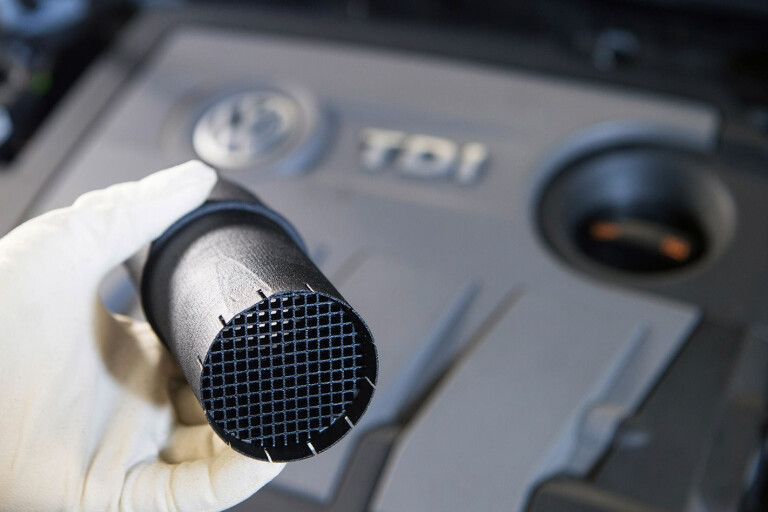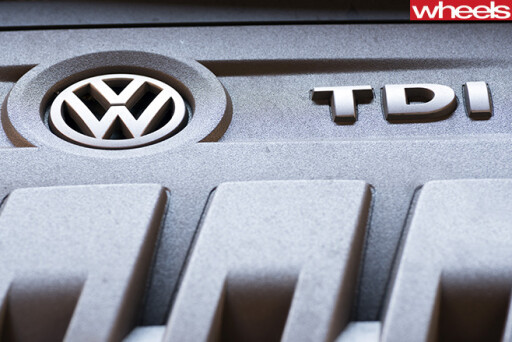
A REPAIR agreed to yesterday in Europe for polluting Volkswagen diesels should quell fears that Australian cars will lose value, the head of VW Group in Australia has said.
His comments came after Volkswagen in Germany said it had agreed with European regulators on fixes for the offending type EA189 diesel engines, a response to the multi-billion dollar emissions scandal that engulfed the brand in September.
The agreed modifications would meet relevant emissions standards, Volkswagen AG said in a statement released yesterday, and were expected to maintain the original vehicles’ performance and fuel efficiency.
But the statement cautioned that “as all model variants first have to be measured, the achievement of these targets cannot yet be finally confirmed”.
The agreed repair did not apply to the US market, where the scandal was exposed. The US has stricter emissions regulations than Europe and Australia.
Volkswagen Group has admitted that up to 11 million vehicles it built with EA189 diesel ngines since 2008 were delivered with engine control software that cheated emissions tests.
Volkswagen said a reprogramming of the engine control computer would be the only change required for the 2.0-litre version of the engine, which was fitted to most of the 99,678 affected cars sold in Australia (78,445 Volkswagens, 16,085 Audis and 5148 Skodas).
A recall program would not begin installing the update in Europe until January 2016 at the earliest, and could take a year or more to complete.
Affected cars include the Polo, Golf, Jetta, Eos, Passat, Passat CC, Caddy, Amarok and Tiguan as well as the Audi A1, A3, A4, A5, A6, TT, Q3 and Q5, and Skoda Yeti, Octavia and Superb. Most are not current models, and VW has withdrawn the remainder from sale pending rectification.

Volkswagen has released a video (top) explaining how the device will be fitted.
“Following an intensive examination, these measures have been ratified by the Federal Motor Transport Authority,” the Volkswagen AG statement said.
“Thanks to advances in engine development and improved simulation of currents inside complex air intake systems, in combination with software optimisation geared towards this, it has been possible to produce a relatively simple and customer-friendly measure.”
Recently appointed VW Group Australia managing director Michael Bartsch told Wheels he was awaiting exact timing on when the Australian cars could be updated, but he believed fears that they would run less well afterwards – and therefore be worth less money – could be put to rest.
He said he was confident all cars would be fixed and customers would not be disadvantaged.
“The fix is nothing intrusive … the fix is quite simple; the fix is completely out of proportion with what the inappropriate behaviour is,” Bartsch said.
“This whole discussion on loss suffered from residual value drop can be put to rest.
“When these fixes are done there is simply no reason to believe there is any consequent impact that should mid-term or post-fix adversely affect the residual values of these cars.”
Bartsch said he was awaiting confirmation from Germany on when the Australian fixes could be rolled out.
“As soon as we know what we have in capacities, where the cars are and how many VAS [diagnostics] machines – the machines that do the reflashing – then we’ll be able to work out a timeline,” he said.
 Even if the go-ahead is given for January, Bartsch admitted the process would take months.
Even if the go-ahead is given for January, Bartsch admitted the process would take months.
And that’s only for cars fitted with the 2.0-litre engine. “The 1.6 will be later in the year [2016],” he said.
Bartsch said Volkswagen Australia was “absolutely” committed to diesel, which he said still brought consumer advantages.
However he acknowledged work needed to be done – particularly on Volkswagen diesels – to rebuild trust.
He said customers were the priority in the lengthy process of updating cars and rebuilding trust in the brand.
“We’ll be tailoring a program that is suitable for the Australian market and doesn’t take our customers for granted,” he said.
Also yesterday, Volkswagen Australia was warned by a Federal Court judge to act sensibly at it faced class actions brought on behalf of disgruntled owners of VW diesels.
Lawyers for VW Australia reportedly had declined to accept court documents on behalf of the parent company in Germany, which had also been named in class action proceedings brought by law firm Maurice Blackburn.
At a hearing in Sydney, Justice Lindsay Foster was reported as saying the decision exposed VW to serious cost orders, and the company had to participate in a sensible way.

COMMENTS